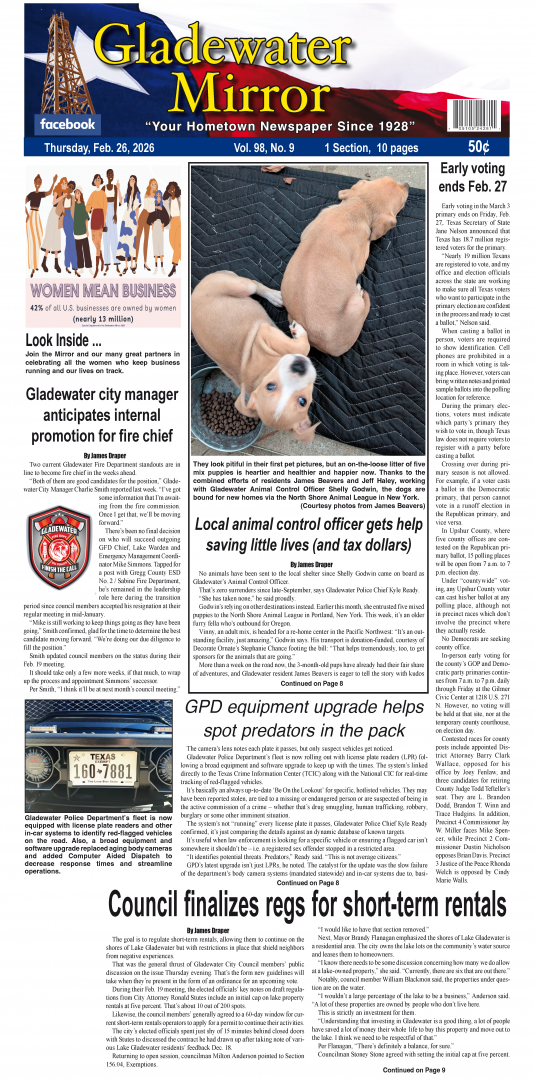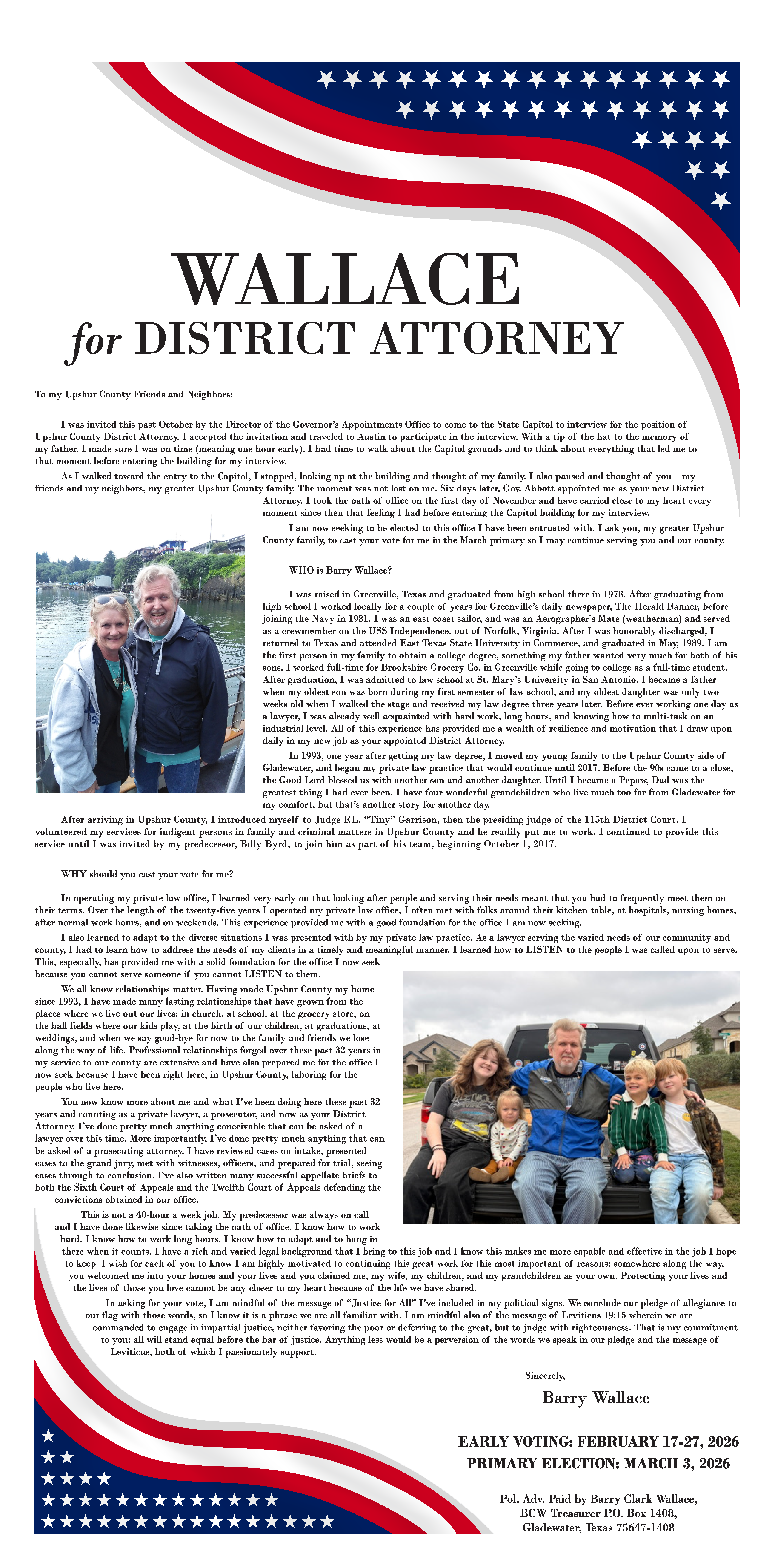With a frigid forecast ahead this weekend, the time to get prepared is now, Gladewater Fire Chief Mike Simmons says, and some common sense precautions will go a long way: “The key to preventing any good disaster is having a good plan.”
Temperatures are projected to drop into the twenties and teens over the next several days, and 2021’s ‘Snowmageddon’ is on a lot of minds.
“Pre-storm we always recommend, ideally, try to get prep done the day before the storm comes,” Simmons said, working from the outside in. “As you’re going into winter, make sure all your water pipes are insulated. Anything that’s exposed and going into the house needs to be covered – disconnect your water hoses from the faucets, and try to cover up your faucets with some kind of insulation material.
“If you’re trying to keep your home warm, if you have gaps in your windows, gaps in your doors, weather stripping and sealing are easy solutions.”
Take some time immediately and look to the trees over the house, Simmons added, searching for anything that might become a problem overhead once ice accumulates.
“It’s always good prior to the storm to trim back your tree branches so you don’t have anything falling off and poking a hole in your roof during winter time.”
Inside, of course, make sure there are sufficient heat options to stay warm. Get ready to layer up. Pull out the blankets. Have plenty of wood available if a fireplace is an option.
“We recommend that once a year you have the flue check, cleaned, inspected,” Simmons said, and keep an eye on it if that hasn’t happened recently. “We do have a lot of fire calls for flues in the wintertime.”
If electric heating isn’t an option, fuel-based heaters are fine, but make some basic preparations there, too.
“Be aware of the byproducts of combustion,” Simmons emphasized. “If you’re using those kinds of heating sources, make sure you have a carbon monoxide detector. If you already have one, check the batteries, and make sure it’s working.
“If you’re going to be using any kind of heaters, make sure you have a multipurpose fire extinguisher in the home.”
Bear in mind, in the worst winter weather scenarios, emergency responders will likely be delayed. In advance, check on elderly family members and neighbors, and make sure they’ve taken the basic precautions as well.
“A lot of time with other adults, they struggle in the cold because their bodies don’t sense the change in temperatures,” Simmons noted, and an easy-to-read digital thermometer can save a life if an individual can’t trust their senses against the weather. “Make sure they have plenty of blankets to stay warm and a phone number to call in case they get too cold.”
Be ready to hunker done, he said. When it comes to moving about on icy roads, don’t.
“As traveling goes, we really don’t recommend traveling in icy conditions or storms,” Simmons said. “If you’re going to do that, make sure you’re prepared for that type of adventure,” packing a shovel, blankets, flashlights, batteries, water and food. “Have some kind of tow-chain or rope, and a good, easy thing to carry and throw in the back of the truck or your truck is a bag of sand or kitty litter to give you some traction.
Whatever the case may be, “Make sure you’re prepared for the worst-case scenario.”








